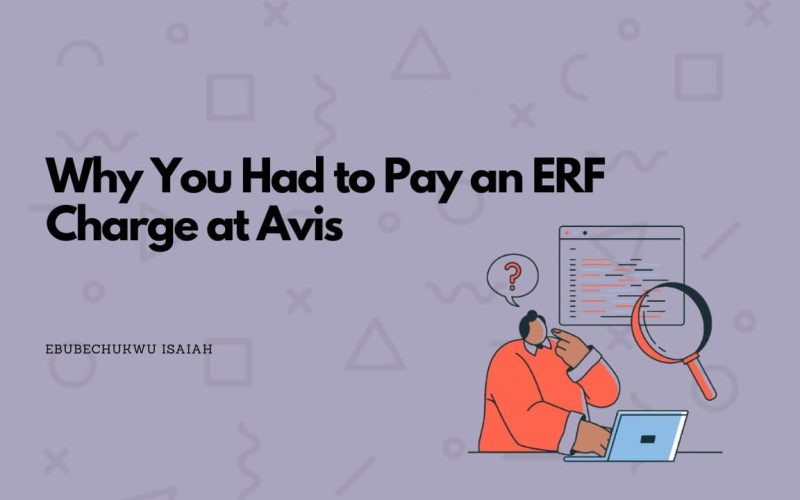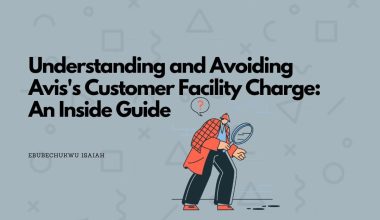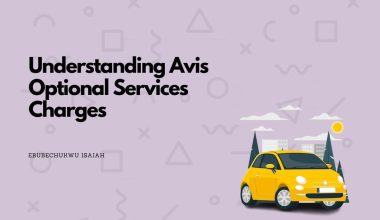Have you ever had to return a rental car earlier than planned? I certainly have, and like many others, I was caught off guard by Avis’s Early Return Fee (ERF).
What might seem like a simple change of plans can actually result in unexpected charges that leave many customers frustrated and confused.
As a frequent traveler who’s dealt with rental car companies extensively, I’ve learned that early return fees aren’t just simple penalties – they’re complex charges that can significantly impact your final bill.
Let me walk you through everything you need to know about Avis’s ERF charges and, more importantly, how you might be able to avoid them.
Understanding ERF Charges: Breaking Down the Basics
When you return an Avis rental car before your scheduled return date, you might face an early return fee that typically ranges from $10 to $15 per day remaining on your reservation. However, the real cost often goes beyond just the ERF charge itself.
Here’s what actually happens when you return early:
- Your daily rate may be recalculated at a higher price
- You lose any promotional rates or discounts applied to the original reservation
- The ERF charge is added on top of these adjustments
For example, if you booked a weekly rate of $250 for seven days (averaging about $36 per day) but return the car after just four days, Avis might recalculate your rate at their standard daily rate of $45-50 per day, plus add the ERF charge for the remaining three days.
Why Does Avis Charge ERF?
You might wonder why returning a car early would cost more, not less. From Avis’s perspective, early returns disrupt their inventory management and revenue projections. They’ve allocated that vehicle for a specific period, potentially turning away other reservations for those days.
Think of it like a hotel reservation – if you book a room for a week but leave after three days, the hotel has lost the opportunity to rent that room to someone else for the remaining days. Rental car companies operate on similar principles.
Strategic Ways to Avoid or Waive ERF Charges
Through my experiences and research, I’ve discovered several effective methods to potentially avoid these fees. Let me share the most reliable approaches:
1. Membership Status and Programs
Your best defense against ERF charges often lies in your relationship with Avis:
- Avis Preferred members often receive more flexibility with returns
- Corporate account holders may have ERF charges automatically waived
- Partner program members (like certain credit card programs) might have special provisions
2. Communication and Timing
The way you handle the early return can make a significant difference:
- Call Avis as soon as you know you’ll need to return early
- Modify your reservation instead of simply returning early
- Request a rate review before finalizing the return
3. Special Circumstances
Certain situations might qualify you for a waiver:
- Emergency situations (medical, family, or work-related)
- Weather-related early returns
- Military deployment orders
- Vehicle mechanical issues
Professional Tips for Handling ERF Charges
Having navigated this system multiple times, I’ve developed some proven strategies for dealing with ERF charges:
- Document Everything
- Save your original reservation confirmation
- Keep records of any communication with Avis
- Take photos of the vehicle condition at return
- Get a printed receipt at return
- Know Your Rights
- Review Avis’s rental agreement thoroughly
- Check your credit card’s rental car benefits
- Understand local rental car regulations
- Negotiate Effectively
- Remain polite but firm in your communication
- Reference your customer history with Avis
- Escalate to a supervisor if necessary
Looking Forward: Preventing Future ERF Issues
To avoid future encounters with ERF charges, consider these preventive measures:
- Book Smart
- Reserve for the shortest time you might need
- Consider flexible rate options
- Use corporate or membership accounts when possible
- Plan Carefully
- Build in buffer time for unexpected changes
- Compare rates for different rental periods
- Read the fine print about early returns
Conclusion
Early return fees are more than just simple charges – they’re complex pricing adjustments that require understanding and strategic handling. By knowing your rights, communicating effectively, and leveraging available programs and circumstances, you can often minimize or avoid these fees entirely.
Remember, the key to success lies in preparation and proactive communication. Whether you’re a frequent renter or occasional customer, these insights and strategies can help you navigate Avis’s ERF system more effectively and potentially save significant money in the process.
The next time you need to return a rental car early, don’t just accept the fees as inevitable. Use these strategies to protect yourself and your wallet. After all, being an informed customer is your best defense against unexpected charges.






